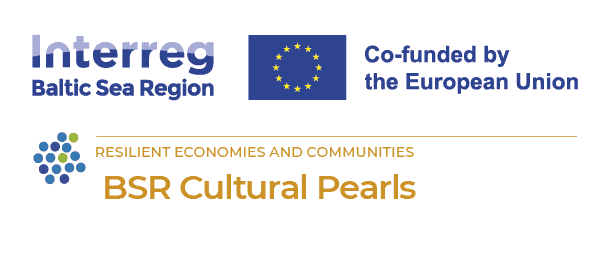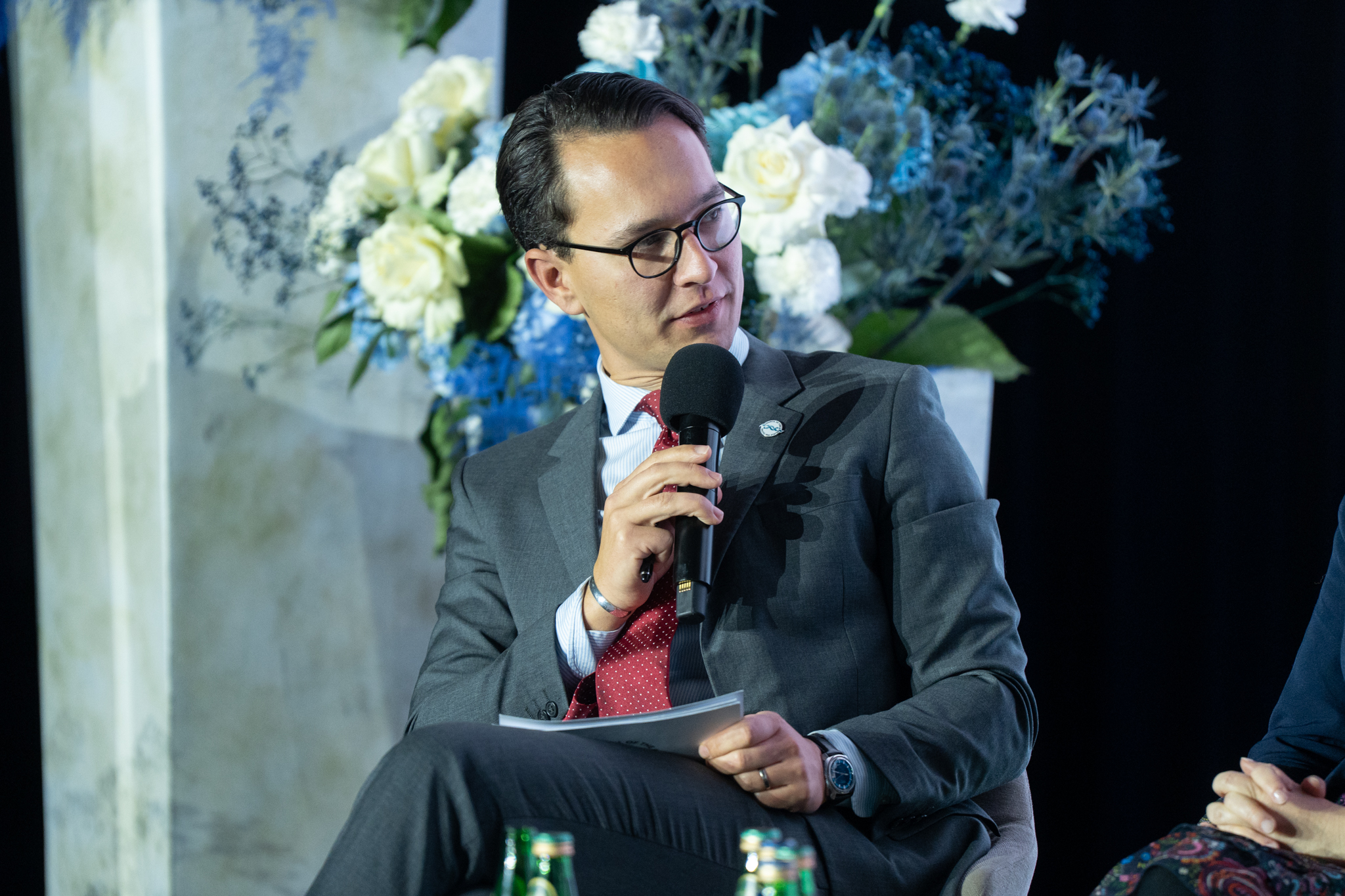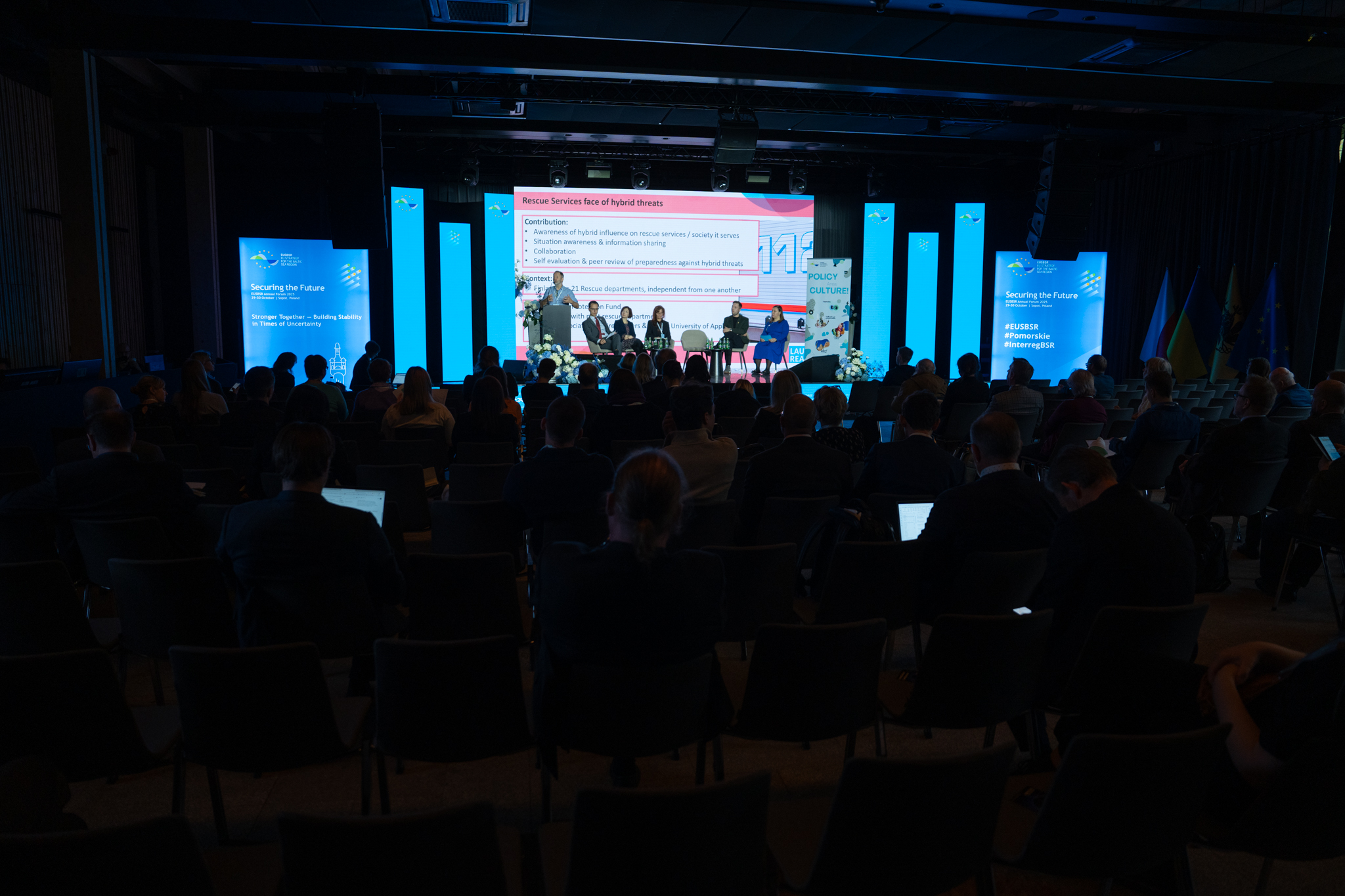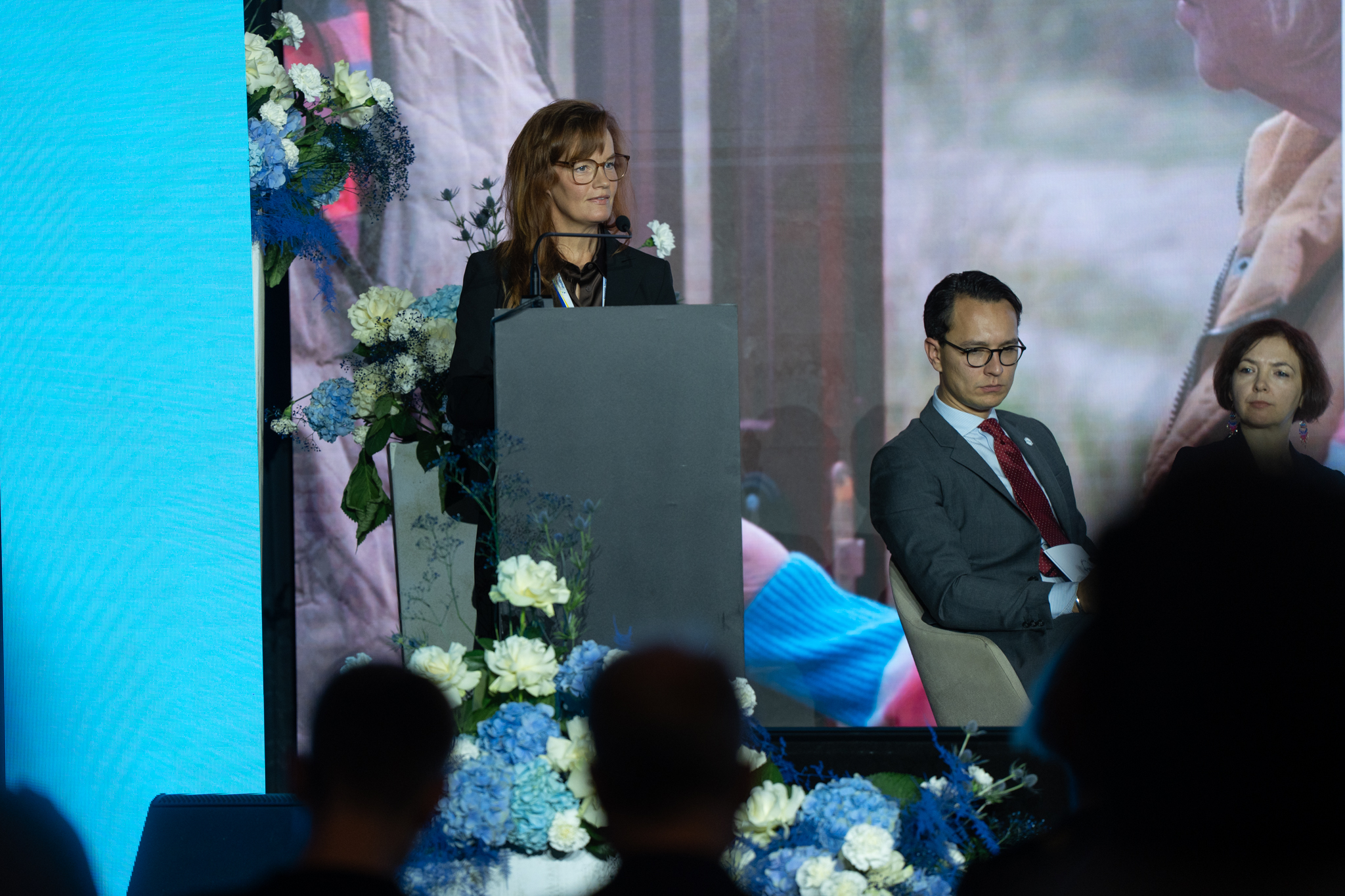
The Soft Core of Hard Security: PA Culture and PA Secure Joint Session at the EUSBSR Annual Forum
06 November 2025
On October 30, 2025, at the EUSBSR Annual Forum in Sopot, Poland, the Policy Areas Culture and Secure hosted the session “Soft Core of Hard Security: Community Cohesion and Agency in Times of Insecurity”. The session particularly explored how social trust, community cohesion and civic engagement form the foundation of resilient societies.
By highlighting initiatives that strengthen togetherness, mental wellbeing and democratic participation, the session underscored that societal security begins with empowered and connected communities.
Moderated by Felix Schartner Giertta (CBSS), project manager of the BSR Cultural Pearls project – the session showcased culture and art as strategic tools for local authorities and civil society to promote cohesion, trust and sense of belonging – key pillars of societal resilience. Echoing the Forum’s theme Securing the Future: Stronger Together the session participants made a strong case for a continued emphasis on putting people in the centre of the resilience discussion.
The session started with a presentation by Dr Harri Ruoslahti, Senior Lecturer at Laurea University of Applied Sciences. From the perspective of the Societal Resilience and Foresight Research group (ResLab) at the Laurea University, he noted how resilience is a continuous process of adapting to change and mitigating crisis. He introduced a concrete example of a collaboration between Finish Rescue Departments and ResLab, illustrating how involvement of society through co-creation and self-evaluation can increase preparedness.
Maja Allard, specialist and strategist at Region Gotland, spoke of the project Stark Socken (Strong Village), as a good example of preparedness through solidarity and togetherness in communities. The Strong Village toolbox consists of tested knowledge and practices to strengthen preparedness in people’s homes. As a result, the project has decreased loneliness, made people feel valued and proud, and increased crime prevention, over entire Gotland.
Another project highlighted during the session was the Interreg project KidsLikeUs. Dr Beata Fabisiak, KidsLikeUs project manager and associate professor at the Poznan University of Life Sciences, pointed out the need to improve the mental wellbeing of children with traumatic experiences. KidsLikeUs developed a Superhero sensory garden ideas matrix with that aim in mind. The matrix takes into account different levels of resources available and offers grounding and expressive activities for children to provide them with a feeling of stability and enable healing.
Founder and head of the New East Culture Institute in Lativa, Joren Dobkiewicz, introduced several initiatives to build resilience against disinformation using cultural narratives. The New East Culture Institute has been engaging with and empowering people through various forms of art. He illustrated how art can be used to share important information in creative ways, enable empathic interactions, and bring about positive change in communities.
Egita Prāma, Director and Program Curator at LAMPA Conversation Festival in Latvia, spoke of the need to create inclusive spaces where people can practice respectful dialogue. The annual open-air festival LAMPA promotes such conversations through fun activities, ranging from debates to politician roasts. The impact of the festival has been significant in mitigating societal polarisation, increasing societal engagement and cooperation, and installing positive and hopeful emotions in its participants. This in turn allows for the needed foundations of understanding and trust that enables people to cooperate in crisis situations.
Read more about resilience initiatives:
Case examples:








